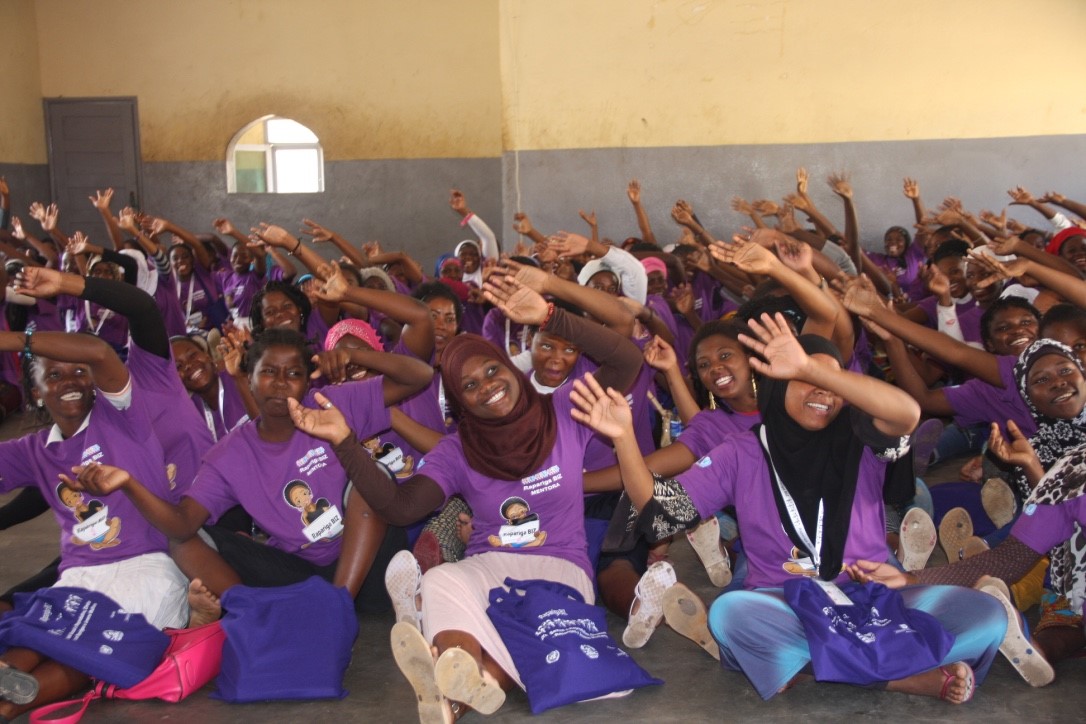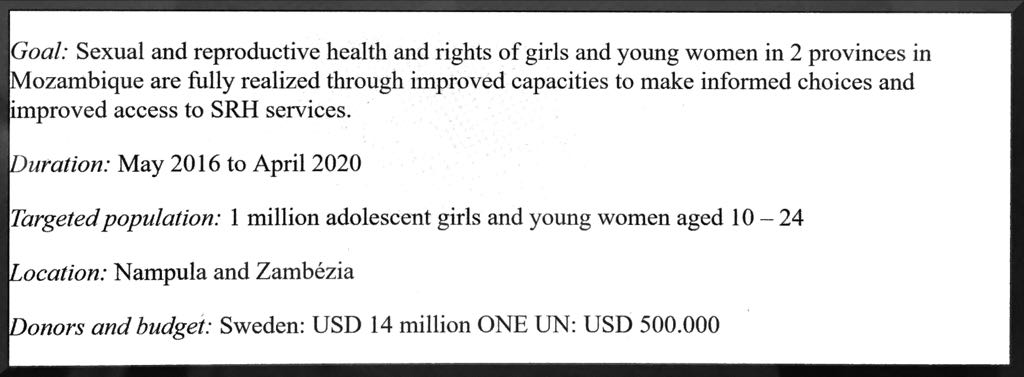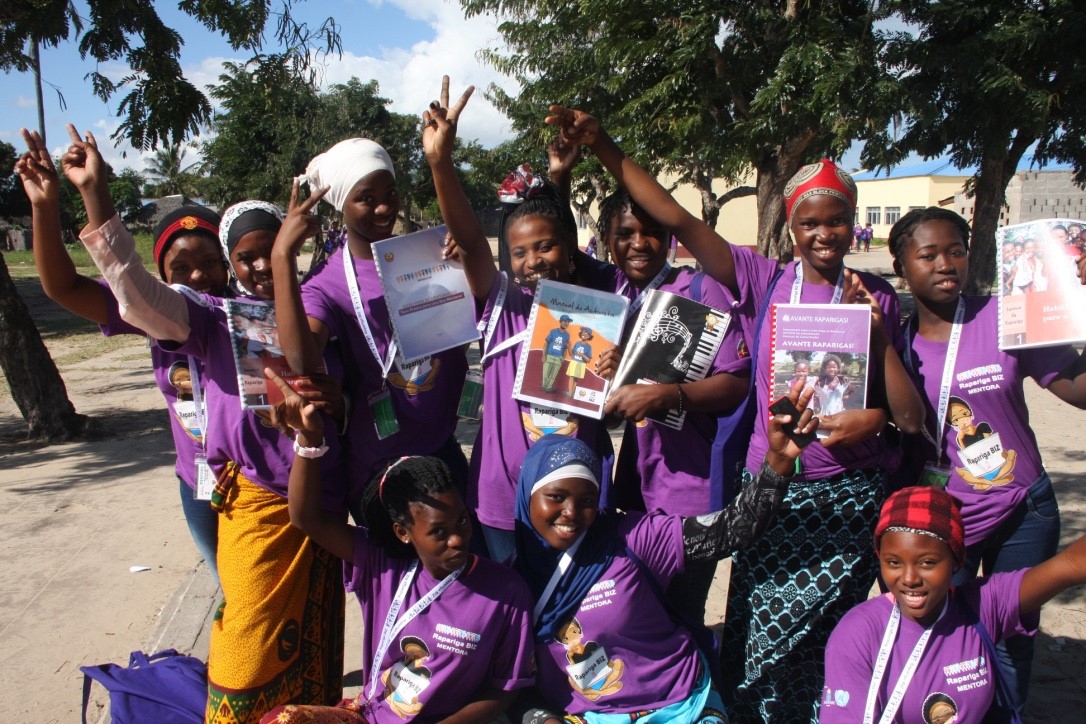Girls and women’s voices have been shut down. We don't hear them. As a mentor I hope to contribute to a change in the position of girls and women in my community, and help the girls find a prosperous and healthy path’, shares Tocosana Carlos Jacinto (14) confidently.
Tocosana, who dreams to become a doctor one day, is saddened to see many girls in her community in Moma District, Nampula - pregnant or mothers while still children. She is one of the 1637 new mentors trained to join the Government led program “Rapariga Biz’ supported by UNFPA, UNESCO, UNICEF and UN Women and financed by the Swedish International Development Cooperation Agency (Sida)
“The mentors training aims to transform secondary school girls into change agents in their communities”, stresses Won Young hong, UNFPA a.i. Representative.

The training is led by the youth association Coalizao and involves mentorship, sexual and reproductive health and rights, life skills, communication approaches, leadership, and participation. With the training of new mentors over the past few months, Rapariga Biz is now present in a total of 7 districts in Nampula and Zambezia.

Mentors Redefine Role of Girls
“I want to be a mentor to help diminish the vulnerabilities of girls in my community and to be someone they can come to”, says Maria Luisa Adelino, Mocuba, Zambezia.
The reality faced by adolescent girls in Mozambique is often harsh and unsafe. In some cases, the sociocultural practices and norms reduce the opportunities for the girls and young women to participate in the decision-making on issues affecting their lives. Mixed with the economic difficulties of families, girls are often the ones to carry the heaviest burden; they are married away as children, some are forced into prostitution, many are experiencing sexual violence - even at school. As a consequence of some of those ills, 46% of adolescent girls between 15-19 years are pregnant or mothers.
Also, some mentors are experiencing the sociocultural pressures:

“I resisted my mother’s attempt to marry me off at 16 because I badly wanted to continue my education. As a mentor I want to use my experience to encourage and support other girls to make the right choices, says Lidia Suale Saide (17).
Lidia wants to inspire girls to become independent and free of the harmful practices and expectations to girls in her community, and adds to their role:
“Let's say no to the harm facing us so we together can develop Mozambique”.
Many girls go through a tremendous transformation through the Rapariga Biz mentors training and now have started to believe in themselves:
“I hope to inspire the girls to open their hearts and share the difficulties they are going through. I want them to be courageous enough to voice what they want” shares Esmeralda Calitos Rafael (15) who has learned to open up and express herself through the Rapariga Biz training.
Rapariga Biz: A Space to Empower
The mentors are the heart of the integrated approach of Rapariga Biz:
“They play a critical role in the lives of the girls as role models, advisors, sisters, supporters, and friends in the difficult transition between childhood and adolescence”, tells Ana Dove, National Coordinator, Coalizao.

The mentors facilitate weekly sessions during a period of four months with 30 of the most vulnerable between10-19 years in a so-called safe space identified by the girls themselves in the community where they live. Here they share and discuss issues relevant to the girls’ lives, including sexual and reproductive health and rights, and they learn life skills such as confidence, communication, decision making etc.
“Now I feel I am somebody in my community. Through Rapariga Biz have changed the lives of someone and the situation of girls in Mozambique just makes me want to be a better mentor” expresses Albertina in Quelimane, Zambezia who was trained last year at the onset of Rapariga Biz.
"The mentors are Mozambique's future leaders”, ends Alberto Nkutumula, Minister of Youth and Sports who leads Rapariga Biz within the Government of Mozambique.


